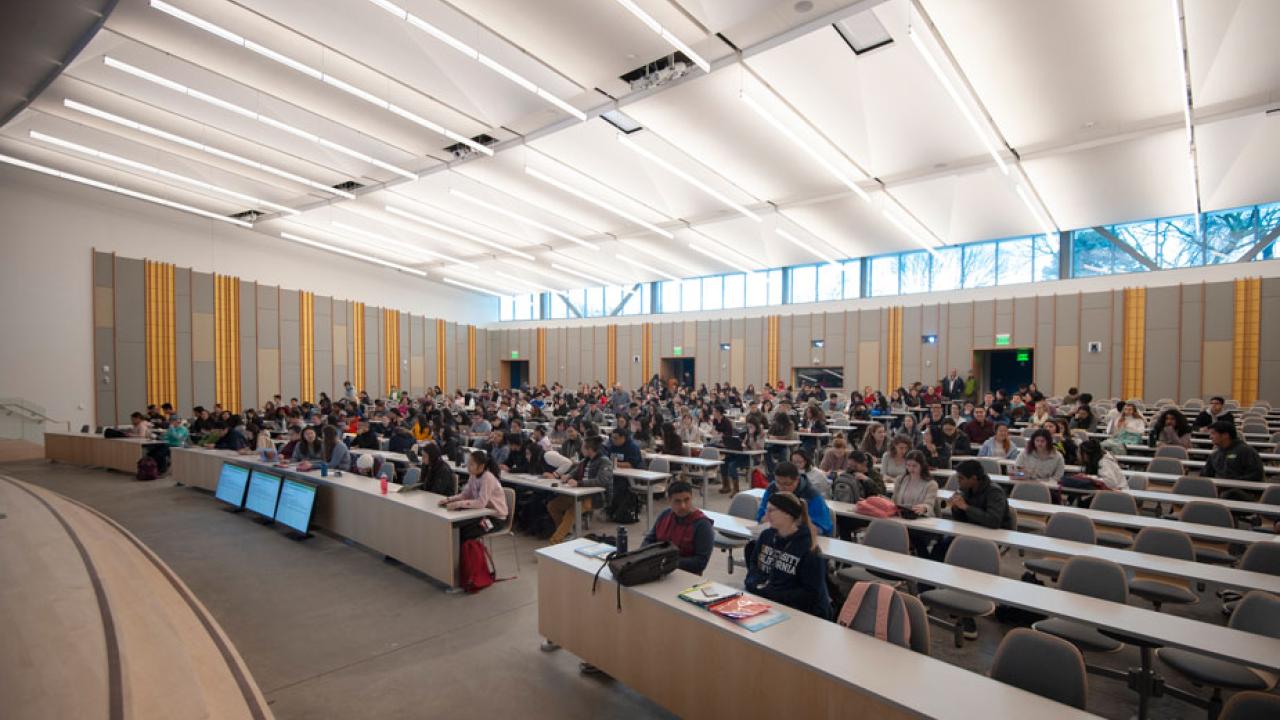
A Message From the Dean - February 2019
The College of Agricultural and Environmental Sciences engages students in innovative, practical and integrated learning. We want our Aggies to leave campus with essential life skills and hands-on experience that will help them succeed. To do this, we continually review our curriculum to make sure our students have access to coursework that exposes them to opportunities and challenges they may experience after graduation. Below is a sampling of some of the new and newly revised courses we’re offering across a variety of disciplines within the college.
Equine Behavior and Welfare is a new animal science course that shows students how to read the body language of horses, donkeys and mules to recognize discomfort, pain and fear. This knowledge will prove especially useful to students interested in veterinary science.
The newly revised Principles of Meat Science covers anatomical, physiological, developmental and biochemical topics. Students also learn about processing, packaging, marketing, microbiology and public health issues associated with today’s U.S. meat industry and meat products.
Behavioral Economics is a new agricultural and resource economics course that promotes a thorough understanding of how behaviors such as procrastination, overconfidence and loss aversion can influence economic decision making. Students also learn about strategies to avoid predictable mistakes that impact marketing and management.
Another recently revived course is Food Laws and Regulation, which seeks to provide students with an understanding of how regulations affect agricultural and food communities, the regulatory agencies tasked with keeping the nation's food supply safe, and related topics such as food labeling, food additives, biotechnology and international regulations.
A new course called Childhood Maltreatment, Trauma, and Resilience, addresses childhood trauma, risk and protective factors and how they affect development and mental health in minors. It also focuses on the prevention and treatment of health risk behaviors, diseases and mental illnesses stemming from early trauma.
Community Participation and Design is a course that gives students an opportunity to explore citizen participation in the process of designing community spaces. Students work with community partners to engage with people in meaningful and empowering ways, which leads to stronger design solutions that have a greater potential for success. As a result, students become effective advocates for more just and equitable communities.
Each year we examine our courses to make sure they provide up-to-date content and prepare students with the depth and breadth they need for their degrees. As faculty join our college, they bring advanced knowledge and skills, and creative approaches to learning that help us keep our curriculum fresh and on the forefront of higher education. We also seek input from industry stakeholders and other potential employers to ensure that our graduates have the skills to help them thrive in their careers. It is a dynamic process, and one we take to heart.